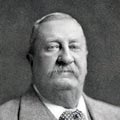Tales of Far Peru, Part 4
Two days later I was at Jura. Almost the first person I came across there was Humpty Dumpty. I shall never forget how our acquaintance started. When I was on my way to the Challana country, and had got as far as where one has to think about leaving the Tipuani-Beni road and take to the footpath known only to a few persons that leads to a small tributary of the Challana River, all of a sudden a fellow came riding down a road on our left. He bestrode a fine black mule. Behind him, also a-muleback, came a very good-looking Indian girl, accompanied by two youngsters, one of whom she carried slung across her shoulders; the other—a mite of three summers—was perched on the forepart of the saddle. Two Indians and three cargo mules followed behind.
The stranger gave me a very breezy greeting. “Hulloa! What’s your name? Where do you come from? and where are you agoing to? I’m good old Humpty Dumpty.”
We both dismounted and had a bit of a yarn together. Dumpty said he had just come from the Beni district where he had a store, and filled in his time buying rubber for a man who was backing him up to £10,000, so there was no immediate reason for him to worry about ways and means.
Previously Dumpty had been engineer on one of the P. S. N. Co.’s boats; but had got touched with the gold fever and left his job to go to the Tipuani washings, where he and a fellow named Melville worked with Mackenzie for some time. Then he picked up with Brummagem Joe and became his agent.
When I told Dumpty where I was going, and the purport of my journey, he strongly advised me to turn back. “They will never let you in,” he said, “and you’ll be very lucky if you don’t come to harm.” At this point his wife intervened. “Prodgers is all right,” she said. “They will let him in.” She evidently knew something, but I didn’t press for information; that was forthcoming subsequently.
After we had enjoyed a nice little chat we parted, he going his way and I mine. On my return journey I met him again at the Hotel Guibert, in La Paz. I inquired after his wife. He then told me she was a Beni woman and, as a natural consequence, had to turn back so soon as they reached the Tipuani. He had married her, so I discovered, out of gratitude for curing him of lupus. She used to paint the affected places with a concoction of herbs and earths, a secret remedy of her tribe. I told Dumpty all about Jura, and persuaded him to finish off his cure there.
The following year I went to Jura, and found he had taken my advice. The baths had applied the finishing touch as I had anticipated, and his ear was quite all right. It was, in fact, as clean as a smelt.
By the way, we had an amusing deal together. He asked me to bring him out from England on my next trip a quantity of cheap jewellery for his store. He said he could dispose of it so as to make 1 per cent. profit. “That means 100 per cent. I suppose,” I exclaimed. “No,” he retorted, “1 per cent. What you charge me £1 for, I shall get £5 to £10 for!”
